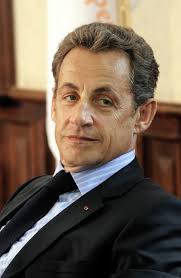
Introduction
Nicolas Sarkozy, who served as the President of France from 2007 to 2012, remains a pivotal figure in French and global politics. His time in office was marked by considerable reforms and controversies that shaped France’s socio-economic landscape and its international relations. As France navigates contemporary challenges, revisiting Sarkozy’s legacy offers valuable insights into political strategies and the evolution of leadership in tumultuous times.
Major Policies and Reforms
Sarkozy’s presidency was characterized by a ‘rupture’ from previous policies, a term he used to describe his aim for significant change. His government implemented substantial reforms in various sectors, particularly in the economy and immigration. Notably, Sarkozy introduced the “Debt Reduction Plan,” which aimed to decrease France’s national debt through budget cuts and increased efficiency in public spending.
In addition to economic measures, Sarkozy’s presidency was also marked by a controversial immigration policy. He advocated for stricter immigration laws and a focus on national identity, which ignited significant public debate and controversies relating to multiculturalism in France. His tough stance on immigration was complemented by his push for a more integrated Europe, ultimately leading to France’s active role in the European Union.
International Relations
On the global stage, Sarkozy’s presidency was no less eventful. He was instrumental in shaping foreign policy during the 2008 financial crisis, advocating for a coordinated international response. His leadership during the NATO summit and active involvement in the Libyan conflict in 2011 solidified France’s presence on the world stage. Sarkozy’s decision to intervene militarily had lasting repercussions on Libya and raised questions about the West’s role in enforcing regime change.
Conclusion
Nicolas Sarkozy’s tenure as President of France is a complex tapestry of ambition, reform, and controversy. His policies continue to influence current political discourse in France, particularly surrounding issues of national identity, economic management, and international engagement. As France and the world face new challenges, the lessons drawn from Sarkozy’s presidency can provide critical insights into effective leadership and governance. Understanding the trajectory of his policies offers contemporary leaders a framework for navigating the complexities of modern-day politics.



